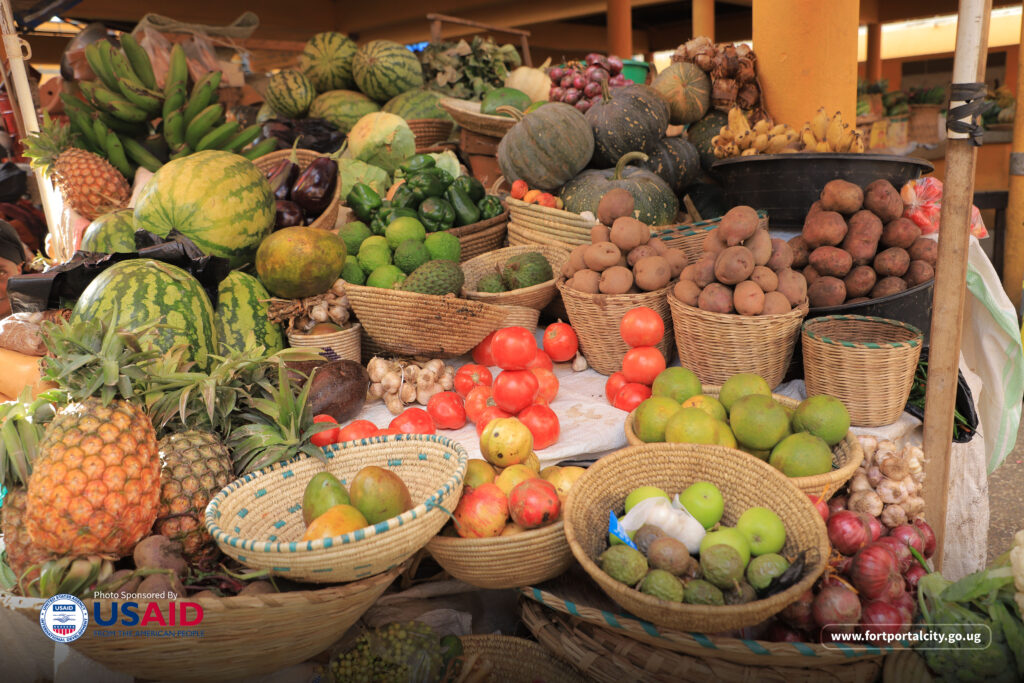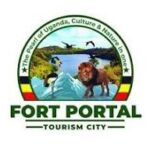Fort Portal, Uganda
Learn more about Fort Portal's food system below
City overview
Fort Portal City, located in western Uganda, gained “Tourism City” status in July 2020. It annexed several areas, forming two divisions: Northern and Central. The predominant language is Rutooro, and the local economy primarily relies on farming, producing crops such as maize, tea, coffee, and bananas. Situated approximately 296 kilometers (184 miles) west of Kampala, Fort Portal is near the Rwenzori Mountains and several crater lakes, attracting outdoor and wildlife enthusiasts. Fort Portal serves as the seat of both Kabarole District and, historically, the Tooro Kingdom, which was established in the 19th century and adds cultural richness to the city. As of 2020, Fort Portal’s population was around 60,800, with a growth rate of 2.12% from 2014 to 2020. The city hosts three hospitals and several higher learning institutions, including Mountains of the Moon University and Uganda Pentecostal University.
Status of food and nutrition security
Fort Portal Tourism City is a major exporter of food products, including coffee, bananas, and maize. However, 38.7% of children in the Tooro region experience stunting due to food and nutrition insecurity (UDHS 2022). This is largely due to excessive selling of local produce, dietary monotony, food safety issues, and rapid urbanization.
The demand for affordable food has increased, leading to a rise in the informal food sector, such as street food vending. Poor soil management and a lack of regenerative agricultural techniques further degrade soil quality.
Addressing food and nutrition security requires building capacity within communities to make informed dietary choices and investing in agricultural infrastructure like irrigation and storage facilities. Comprehensive policies targeting root causes, such as poverty and inequity, are essential. The establishment of the City Nutrition Coordination Committee reflects ongoing efforts to improve nutrition outcomes, but significant challenges remain.
Food systems policies and programmes
To enhance food security and nutrition in Fort Portal City, the city collaborates with KRC-Uganda to implement the Food System Lab under the Healthy Food Africa program, funded by HIVOS. This initiative promotes sustainable and equitable production and consumption of diverse, nutritious foods, helping to reduce stunting and malnutrition in the region.
The city employs a multi-actor approach involving key players such as the local government, the City Nutrition Coordination Committee (DNCC), food ambassadors, smallholder farmers, and civil society organisations. Together, they identify food system constraints and generate innovative solutions.
Additionally, a City Ordinance on Food Safety has been drafted to guide food businesses. Partnerships with organizations like CARE, Baylor, Joint Effort to Save the Environment (JESE), and the Association of the Rwenzori Community (RCA) support the city’s food system transformation. Efforts also include orienting political leaders on food governance and strengthening school food systems through nutrition clubs and kitchen gardens.

Challenges
Infant and children malnutrition,
Obesity and dietary related diseases
Food loss and waste
Food safety & sanitation (including safe water)
Poor infrastructure
Strengths
Availability of healthy food (preventing food deserts)
Pricing of healthy food and limiting food price inflation
Taking control of food mandates and budgets at city level
Successful initiatives
Fort Portal has implemented several successful initiatives in nutrition governance. The formation and functionalisation of City and Division Nutrition Coordination Committees have enhanced oversight and collaboration. Routine monitoring and supervision of food handling points, in partnership with nutrition and health stakeholders, ensure safety standards are met.
Community awareness of nutrition and food safety has been improved through various media platforms, including Information Education and Communication (IEC) materials, radio spot messages, and jingles. Additionally, the city has mobilised consumer groups to increase advocacy, exemplified by the Coalition of the Willing (CoW)—a consumer advocacy group that includes street food vendors, restaurant owners, and chefs, all contributing to sustainable food systems in Fort Portal.
Ambitions and targets in terms of sustainability of the food system
Fort Portal aims to further strengthen food system governance through nutrition coordination committees and create an enabling environment for food systems. The city is focused on enhancing consumer awareness for healthier food choices and options. Additionally, improving infrastructure, particularly in marketplaces, abattoirs, and food processing units, is a key priority.

